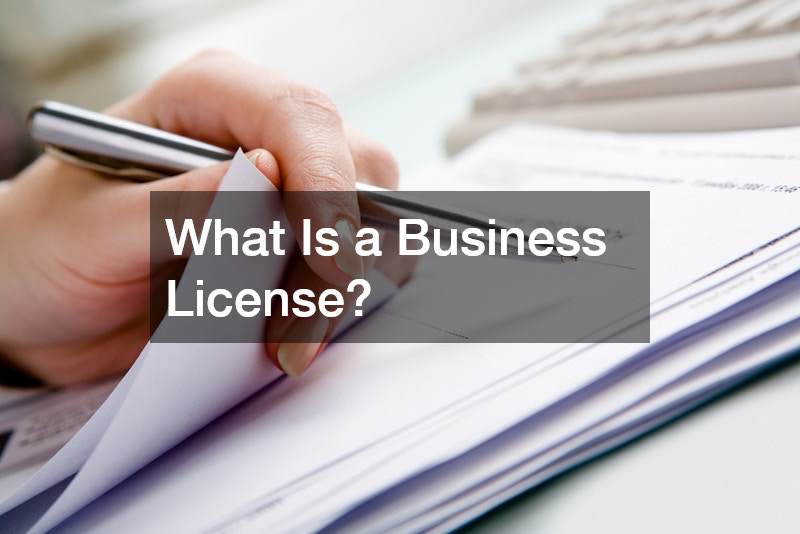Selling online has never been easier. With platforms like Shopify, Amazon, and Etsy, anyone can set up a store and start selling products in just a few clicks. But before you begin, you may be asking yourself an important question: “Do I need a business license to sell online?”
The answer depends on several factors—such as what you’re selling, where you live, and how you run your business. While not every online seller is required to have a license, understanding the legal requirements can save you from penalties, fines, and even the risk of being shut down.
This article will walk you through the essentials, covering the situations where you may need a license, the benefits of having one, and what happens if you skip this step.
What Is a Business License?

A business license is an official document issued by a government agency that allows you to legally operate your business. Think of it as permission from your city, county, or state to sell goods or services.
For online sellers, business licenses can apply just as much as they do to physical stores. Even though your store may be digital, you are still engaging in commercial activity that falls under legal rules.
Types of business licenses may include:
- General business license – Required by most cities or counties for any type of business.
- Home occupation permit – Needed if you run your online business from your home.
- Sales tax permit (seller’s permit) – Allows you to collect sales tax from customers.
- Professional licenses – Required if you sell regulated goods (like alcohol, tobacco, or firearms).
Do I Always Need a Business License to Sell Online?
Not always. Some small sellers can operate without a license, especially if they’re considered hobbyists. However, the more serious your online business becomes, the more likely you’ll need one.
Here are some situations where a business license is usually required:
- You are selling products regularly for profit, not just occasionally.
- You need to collect and remit sales tax.
- You operate under a brand name that’s different from your personal name.
- You sell restricted or regulated products.
- You want to open a business bank account or apply for loans.
On the other hand, you might not need a license if:
- You sell used items occasionally (like reselling old clothes on eBay).
- Your activity is classified as a hobby rather than a business.
- Your sales volume is very small and irregular.
Federal, State, and Local Rules
The tricky part of online selling is that rules differ depending on where you live.
- Federal level: In most cases, the federal government does not require a business license for general e-commerce. However, if you sell restricted products such as firearms or alcohol, you must follow federal licensing rules.
- State level: Many states require a sales tax permit if you sell goods to customers within the state. This allows you to collect and remit taxes properly.
- Local level: Cities and counties often require a general business license or a home occupation permit if you run your business from home.
Since every location has its own rules, it’s best to check with your local city hall or state business office.
Benefits of Having a Business License

Even if you’re not legally required to get a business license right away, having one comes with several benefits:
Builds trust with customers – A licensed business looks more professional and credible. Customers feel more confident buying from you when they know your business is officially registered.
Access to wholesale suppliers – Many suppliers require proof of a business license before selling products at wholesale prices. Having one gives you access to better deals and more product options.
Legal protection – Operating without a license can lead to fines, penalties, or even a business shutdown. A license ensures you comply with local laws and reduces the risk of legal problems.
Better financial opportunities – With a license, you can open a business bank account, which helps separate personal and business finances. You’ll also be able to apply for business credit cards and loans, making it easier to grow.
Tax advantages – A registered business may qualify for valuable tax deductions. This includes deducting expenses like office supplies, travel costs, and equipment, which can save you money at tax time.
Easier business growth – Having a license makes it easier to scale. Whether you want to hire employees, lease a commercial space, or expand into new markets, being licensed ensures you’re ready for growth.
Improved reputation with partners – Banks, lenders, and even potential partners are more likely to work with a business that’s properly licensed. It shows you’re serious and committed to running things the right way.
Risks of Selling Online Without a License
If you sell online without the proper license, you may face several consequences:
- Fines and penalties – Local governments can charge you for operating without a license.
- Forced closure – Your online shop could be shut down until you comply.
- Loss of credibility – Customers and suppliers may hesitate to work with an unlicensed seller.
- Legal problems – Selling regulated goods without the right license can lead to serious legal trouble.
While it may be tempting to skip this step to save time and money, the risks often outweigh the short-term benefits.
Selling on Marketplaces: Do You Still Need a License?
Many sellers wonder if platforms like Amazon, Etsy, or eBay require a business license. The answer: not directly.
These platforms usually do not require proof of a business license to open a seller account. However, you are still responsible for following state and local laws.
For example:
- Etsy allows hobby sellers to list handmade crafts, but if you’re running a full-time business, you should have the proper license.
- Amazon expects professional sellers to comply with tax and licensing requirements.
- Shopify is just a platform—you are fully responsible for making sure your business is legal.
In short, the platform won’t enforce licensing, but the government might.
Do You Need a Business License for Dropshipping?
Dropshipping is a popular online business model where you sell products without holding inventory. Instead, you partner with suppliers who ship items directly to customers.
Many new dropshippers assume they don’t need a business license—but in most cases, you do.
Why? Because dropshipping is still a real business. You’re still selling products for profit, collecting payments, and operating under a brand. Most suppliers will also ask for proof of a business license before working with you.
Step-by-Step: How to Get a Business License
Getting a business license may sound complicated, but the process is usually straightforward. Here’s how to get started:
Decide your business structure – Choose whether you’ll operate as a sole proprietorship, partnership, LLC, or corporation. Your structure impacts taxes, liability, and the type of license you’ll need.
Choose a business name – Pick a unique, memorable name that fits your brand. If you don’t want to use your legal name, you’ll need to register a DBA (“doing business as”) with your local government.
Apply for a business license – Contact your city or county office to file the application. Some areas allow online filing, while others require in-person paperwork.
Register for a sales tax permit – If you’re selling taxable goods or services, you’ll need a permit from your state tax office to collect and remit sales tax legally.
Check for industry-specific licenses – Certain industries require special permits. For example, selling food, alcohol, firearms, or health-related items often comes with additional licensing requirements.
Pay the fees – Most licenses cost between $50 and $400, depending on your location and business type. Keep your receipt for tax and record-keeping purposes.
Renew annually if required – Many jurisdictions require yearly renewal to keep your license active. Failing to renew could result in penalties or suspension of your right to operate.
Final Checklist Before You Start Selling Online
Before you launch your online shop, make sure you’ve covered the basics:
- ✅ Check federal, state, and local rules.
- ✅ Apply for a general business license if required.
- ✅ Get a sales tax permit to collect and remit taxes.
- ✅ Consider a home occupation permit if working from home.
- ✅ Register your business name if different from your personal name.
- ✅ Open a business bank account for financial protection.
Conclusion
So, do you need a business license to sell online?
In most cases, yes—especially if you’re selling regularly and intend to run a long-term business. While occasional hobby sales may not require one, serious sellers should take licensing seriously.
Getting a business license is not just about following the law. It protects your business, builds customer trust, and gives you access to better financial and supplier opportunities.
If you’re planning to sell online for profit, taking the time to get licensed is one of the smartest moves you can make for long-term success.
